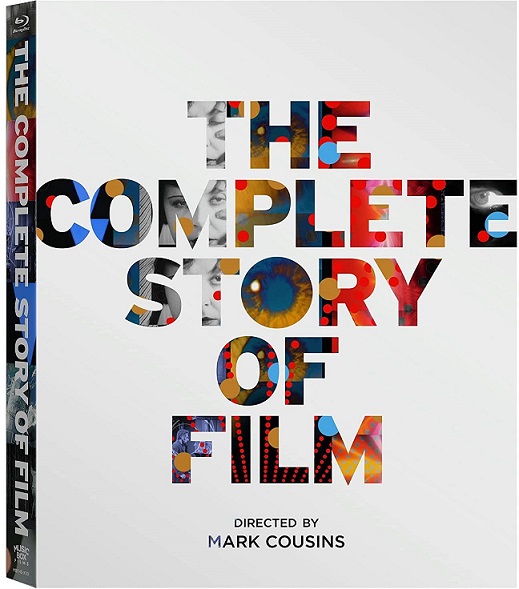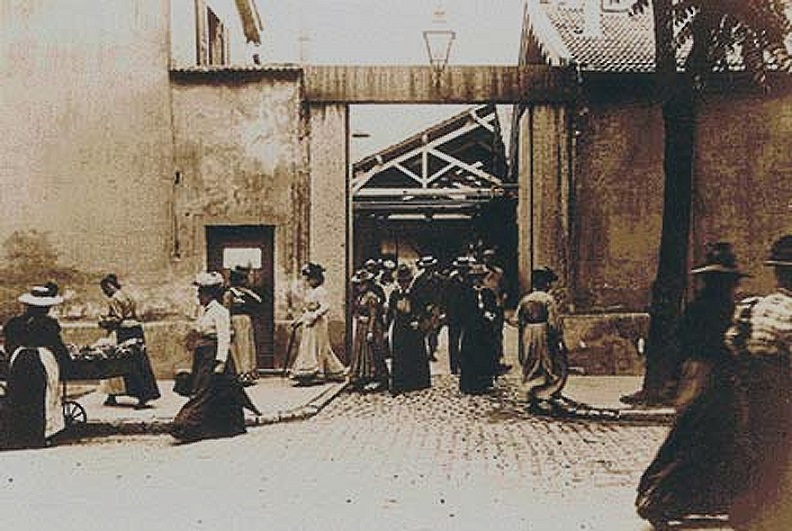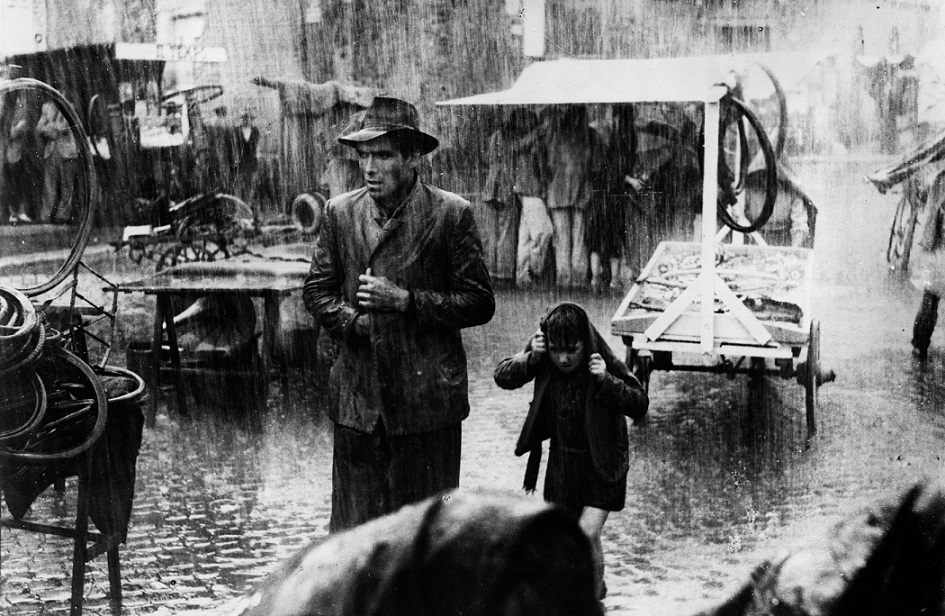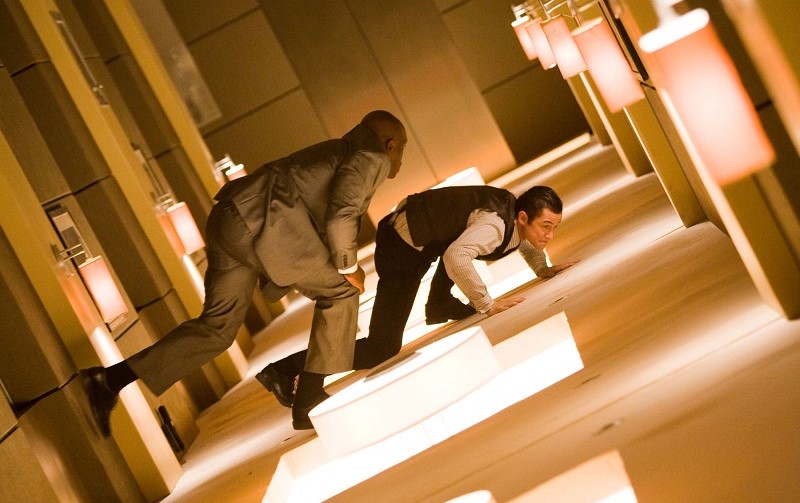This Blu-ray is currently available from Music Box Films.

For this reviewer, it’s hard to imagine a world without motion pictures. But thanks to the tireless work of inventors, artists, distributors and others involved in the film industry, this individual hasn’t ever had to worry about it and can instead watch, analyze or simply enjoy a picture with ease. There is an awful lot to detail about how motion pictures have come about and the way that storytelling has progressed, so it’s quite a bold statement to promise a complete look at roughly 130 years of movie history in two documentaries. However, historian Mark Cousins has attempted to do just that with The Complete Story of Film.
Actually, this release contains two separate non-fiction projects. The first is the nearly 15-hour The Story of Film: An Odyssey (2011) and the second is a 3 ½ hour follow-up The Story of Film: A New Generation (2021), which delves into more recent features and tries to offer suggestions about current trends and where the medium may be headed in the future. These British productions have been the source of some controversy among film scholars. Some have critiqued elements of the docs and the narrator’s own personal biases towards particular figures and films irritating, while others have been amazed.
Each roughly 1-hour long episode has a theme and ultimately details accomplishments, starting with the invention of the motion picture camera, moving through technical advancements like editing, camera angles, the use of sound, not to mention storytelling techniques. While chapters do use dates and promise to detail what specifically occurred during these periods, there are plenty of tangents that jump ahead to show how certain approaches were adapted in the future. Of course, the documentary moves through and covers Hollywood, international cinema, neorealism, film noir, French New Wave and many more movements, eventually ending on modern cinema of the 2000s.

I had never seen this lengthy treatise before and went in cold, other than having heard a few comments and/or criticisms here and there. Frankly, many of the disapproving appraisals do have strong points to make. Condensing a massive subject into even 18 ½ hours means that many important breakthroughs are given short shrift and there are some statements made by Cousins that even I, frankly, completely disagree with.
In jumping back and forth between eras and central themes on each subject, he does contradict himself on occasion. There’s a definite blasting of Hollywood cinema, yet a large amount of time and attention is paid to it and the technical and creative advancements from this part of the world. And despite Cousin’s annoyance about the lack of focus on innovators in world cinema, certain countries get a history that only amounts to a clip or two and notes on a couple of filmmakers. Yes, a few parts of the world do get a lengthy examination, but others don’t get nearly as much attention as they should.

For instance, Canada is summed up as a country that delivered the work of Norman McLaren and David Cronenberg and produced stories that expose the darker, dirtier side of human nature. And… (besides a brief reference to Denys Arcand in a later episode) that’s pretty much it. There is much, much more going on in the country’s cinematic history and it would have been nice to see a deeper delve into both this country and other nations that are given superficial treatment.
The filmmakers also have a habit of playing up some older film stars as tragic figures. There is a suggestion that Buster Keaton was completely forgotten by the public following his heyday in the 1920s. But despite a brief dark period noted in the narration and losing leading man status, Keaton actually continued performing in Hollywood features and spent the later part of his life happily married and working steadily. Guess that part of his history just didn’t have the same dramatic punch.

But despite its issues, the majority of what is presented does fit in with what I learned in university and, even in this distilled form, makes for interesting and, at times, exciting viewing. There are some very important titles from the past and present that are examined and it’s great to see someone note camera angles and cuts and their effect on the narrative. Sometimes there is a tendency to excessively describe the events occurring onscreen during clips, but plenty of his comments and notes are important and will help viewers understand why a certain scene exudes a particular feeling or emotion.
And, of course, the Blu-ray’s picture quality is excellent. All of the clips look wonderful and one can really see how beautifully shot these movies are, whether they came from the 1920s or recent days.

Again, many may disagree with some of Cousin’s personal taste. But admittedly, different views are what makes discussing movies fun in the first place. The ability to talk passionately about why something on the screen works for them and what other viewers may get out of watching it is always enjoyable to listen to (even if other individuals may come away feeling differently about the very same picture). Many of the movies and filmmakers featured in the documentary are favorites of mine as well and, as it’s entertaining to get a sense of why these particular titles speak to him.
Additionally, the important historical details are present and will be informative to new audiences. And when Cousins does properly hone in on some underrepresented parts of the world and examines films that should be better known, there is plenty of good insight. There are also some great interviews with various figures who were either in or worked some of the titles. They are able to present a clear picture of their intentions as well as the individuals they worked with and knew personally.

Overall, the two documentaries that make up The Complete Story of Film are enlightening and a wonderful way to either re-familiarize yourself with the origins of cinema… or introduce interested parties looking for a place to start learning about its history. It may not be entirely complete (there’s no way that such a huge subject can be covered perfectly in such a short amount of time) and some of it is debatable, but many essential inventions and titles are properly detailed. The Blu-ray is certainly worth picking up and checking out. At the very least, you’ll walk away with a big, updated list of must-see movies to check out in the future.


